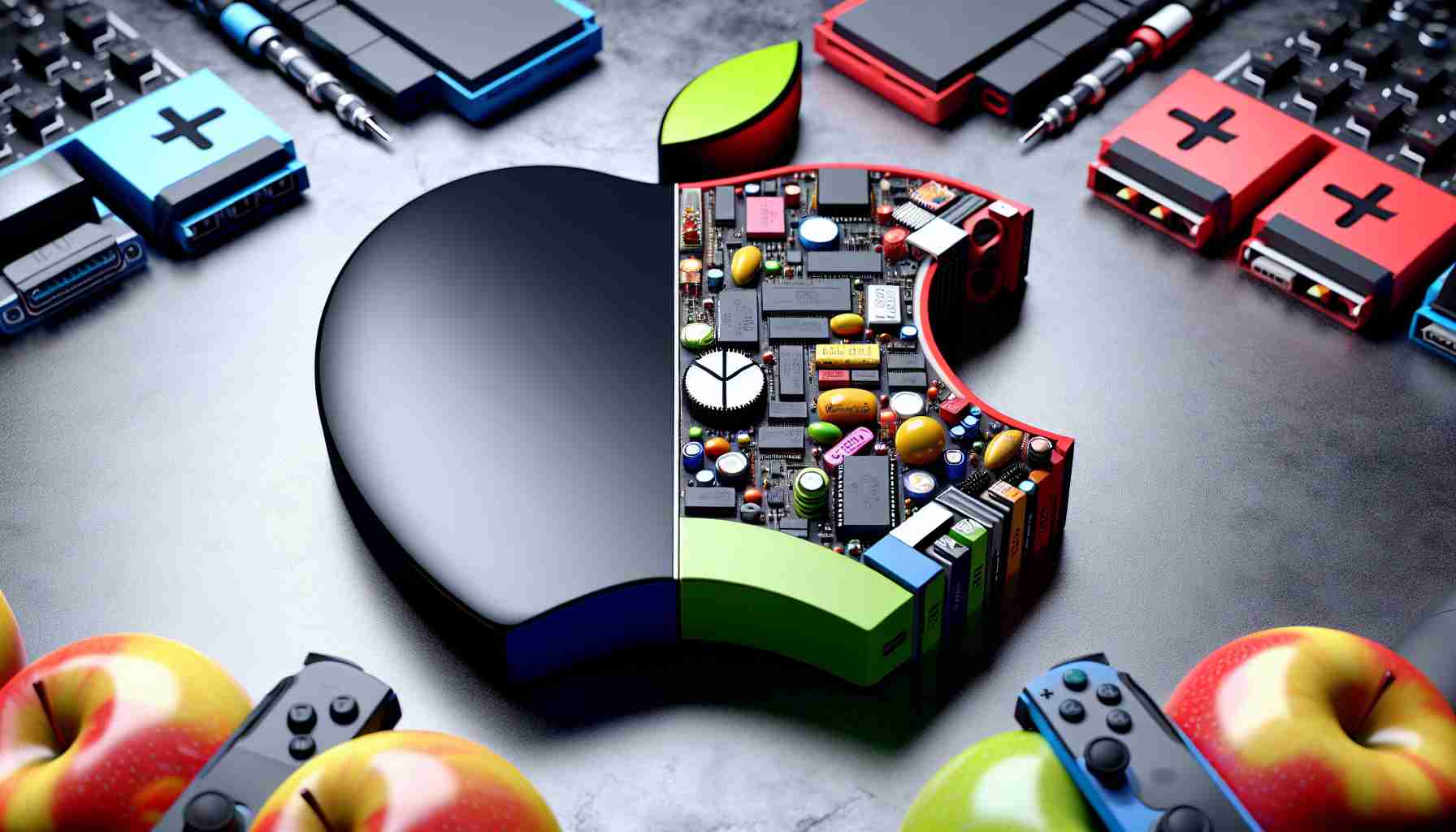Apple’s Gaming Conundrum
Once upon a time, Apple’s Apple II was considered a beacon of gaming innovation – despite Steve Jobs’s personal disdain for games. Years have passed, and Apple’s involvement in gaming has become rather tepid. Their gaming service, Apple Arcade, hasn’t exactly revolutionized the industry, and while iOS games are abundant, many lack substantial quality, bordering on being disposable.
Apple is well aware that a strong gaming library can attract a dedicated user base and drive platform sales. To shore up their gaming offerings, there have been whispers in the tech community about Apple acquiring a major player in the industry.
How Nintendo Stumbles Yet Shines
Nintendo, on the other hand, is an unpredictable yet venerated player in the game development scene. Their decision-making sometimes baffles industry analysts, oscillating between hits like the DS and misses akin to the Virtual Boy. Despite a treasure trove of classic games, Nintendo has shown reluctance in lowering prices or fully capitalizing on their rich library due to limited resources.
A potential acquisition could be a path for Nintendo, opening doors to their vast, untapped potential.
The Mythical Synergy vs. Reality
An Apple-Nintendo merger sounds promising: Apple’s mastery of hardware and software combined with Nintendo’s acclaimed game development. However, their business models clash, with Nintendo accepting lower hardware profits unlike Apple’s lucrative margins. Apple offers many products through the App Store at minimal profit, in stark contrast to Nintendo’s strategy.
Moreover, the cultural fit poses a significant hurdle. Apple’s American business ethos is a world away from Nintendo’s Japanese heritage, making integration a daunting task.
Independent Giants
Apple may not need a gaming-centric acquisition; their existing products like the iPhone and Apple TV already play dual roles as gaming devices. Nintendo, too, is financially robust and likely too culturally singular to merge with a Western conglomerate.
In Conclusion
While the gaming community can dream about a powerhouse union between Apple and Nintendo, the reality suggests that both companies should maintain their autonomy. Having their distinct paths seems to be the optimal choice for their respective futures.
The Hypothetical Tech Union: Apple & Nintendo
In this speculative discussion about a potential union between tech giant Apple and gaming legend Nintendo, various considerations emerge that could reshape the technology and gaming landscapes.
Key Questions and Answers:
– Why would Apple consider acquiring Nintendo?
Apple might eye Nintendo as a means to bolster its gaming credentials. Despite Apple’s success in the mobile gaming market with the App Store, it has yet to carve out a significant presence in the dedicated gaming sector. Nintendo’s intellectual property and esteemed game franchises could bring a devoted audience to Apple’s ecosystem.
– What challenges could arise from an Apple-Nintendo merger?
Challenges include reconciling business models, with Apple’s high-margin approach contrasting Nintendo’s strategy, which often accepts lower margins on hardware. Cultural integration would be another major hurdle, considering the significant differences between the U.S. and Japanese corporate sensibilities.
– What controversies could a merger entail?
Controversy may stem from concerns over market consolidation, potential layoffs due to redundancy, and fears over whether Apple would maintain the Nintendo brand’s unique gaming tradition or shift focus towards more monetization, as seen in various App Store games.
Advantages:
– A merger could bring technical and design ingenuity to Nintendo’s beloved franchises, possibly enabling iterations with advanced hardware capabilities.
– Apple could tap into Nintendo’s devoted fan base and exclusive titles to enhance its gaming services and compete more fiercely with other tech giants in the gaming arena.
Disadvantages:
– Integration issues could dilute Nintendo’s brand, incongruent business philosophies may lead to conflict, and the blending of unique corporate cultures might encounter resistance from both sides.
– The gaming community could react negatively if Apple’s classic premium-pricing model alters the accessibility of Nintendo’s traditionally more affordable gaming options.
Suggested Related Links:
– For information on Apple products and their business strategy, visit Apple.
– To explore Nintendo’s gaming heritage and current product lineup, access the official website at Nintendo.
In the realm of tech and gaming, both hypothetical and real-world mergers are met with optimism and skepticism. While collaborations can forge new paths to innovation and profit, they must be implemented with an acute awareness of the legacies and consumer expectations that define each company. Whether or there will be any concrete developments between Apple and Nintendo remains to be seen, but discussions around such topics illuminate the dynamic and interconnected nature of the tech industry.
